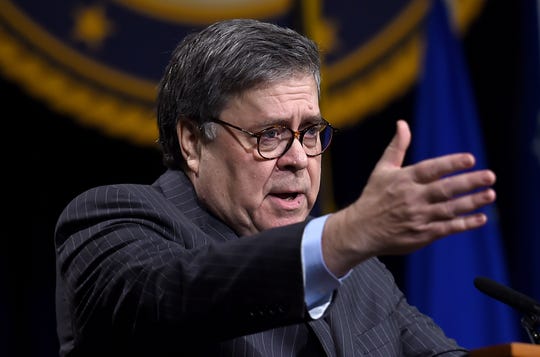Church and State Should Be Kept Separate but What about Religion and Politics?
By Richard Conville
I disagree with Barr on several points, and you may too. First, to allege there has been an “assault on religion” is pure hyperbole. To blame eroding moral standards on “secularists,” as Barr does, raises the question, why do more people now, than, say, 50 years ago, consider themselves to be secular and not so religious? Could part of the fault lie at the feet of the Church? How has it failed to capture the imagination of those now more secular people? Rather than an assault on religion, traditional religious institutions have been leaking members for decades: no news here. Moreover, the “traditional moral order,” that Barr so highly prizes, was presumably in place during the time of the rampant, world-wide sex scandal involving Catholic priests’ assaults on thousands of young boys. Those “right rules” did not save those children. Second, Mr. Barr makes no mention of corporate “bad behavior,” and instead, focuses exclusively on individual “bad behavior,” singling out children born out of wedlock and drug addiction. To Barr, when the federal government attempts to alleviate the consequences of addiction and single motherhood, by instituting social programs, it becomes coercive and is to be feared. Here’s what I fear more-- the President’s rolling back regulations protecting clean water and clean air, thus weakening the state in just the wrong places and risking the health and safety of us all. Barr further alleges that Christianity does not deal with “macro-morality,” that is, corporate bad behavior, but rather depends wholly on “our own personal morality” to transform the world. So, it’s the individual citizen vs the Kemper County boondoggle by Mississippi Power? The individual vs the obscenely high cost of prescription drugs? Really? In conclusion, Barr is dangerous in my judgment. He seems to want a theocracy, where laws are shaped by his own version of conservative Catholic doctrine. I believe that favoring one small sliver of theology (Barr’s) out of one religion (Christianity) over all others to guide government policy violates the establishment clause of the First Amendment. Pretty simple. Church and state must be kept separate, as a matter of law; but religion and politics, that’s another story. Inevitably, I believe, religion will infuse one’s politics, especially in the south. In his speech, we get a vivid picture of how Mr. Barr’s religious commitments infuse his politics. But beware: that “founding generation” of the Republic, as Barr refers to it, was guided, he alleges, by the “Judeo-Christian moral system”—and they institutionalized slavery. That should give us pause! Whose religion will best infuse our politics? That is the question. Not Barr’s! Richard Conville of Hattiesburg is Professor Emeritus Communication Studies at The University of Southern Mississippi.
|
.
Any original material on these pages is copyright © BishopAccountability.org 2004. Reproduce freely with attribution.
